The Story of LEAP
-
We all love a good story, and the story of LEAP is full of inspiration, challenges and adventure!
Lambeth Early Action Partnership (LEAP) was born from the energy and passion that Sure Start and Children’s Centres programmes injected into early years provision in Lambeth. LEAP provided the opportunity to design and develop an innovative programme to improve outcomes for pregnant women, babies and children and their families – a once in a lifetime opportunity.
LEAP has developed more than twenty local services to meet the needs of families through pregnancy and the early years of childhood. We have worked with an energetic workforce who are dedicated to the provision of quality services and activities.
-
LEAP has listened to parents, communities, practitioners, and partners to create an environment of shared learning and mutual trust.
Throughout the programme we have remained curious about how our programme impacts on the lives of the children, families, and communities. To understand this, we have collected and analysed data and stories from across the LEAP partnership.
I am proud of the journey we have taken so far, and excited that LEAP and our partners will leave a positive legacy for children, families, and communities in Lambeth.
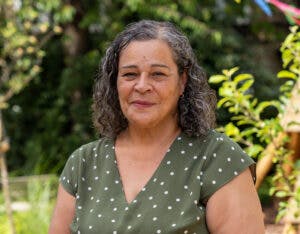
LEAP’s Learning Reports
Read more here about what LEAP has delivered and what we have learned.
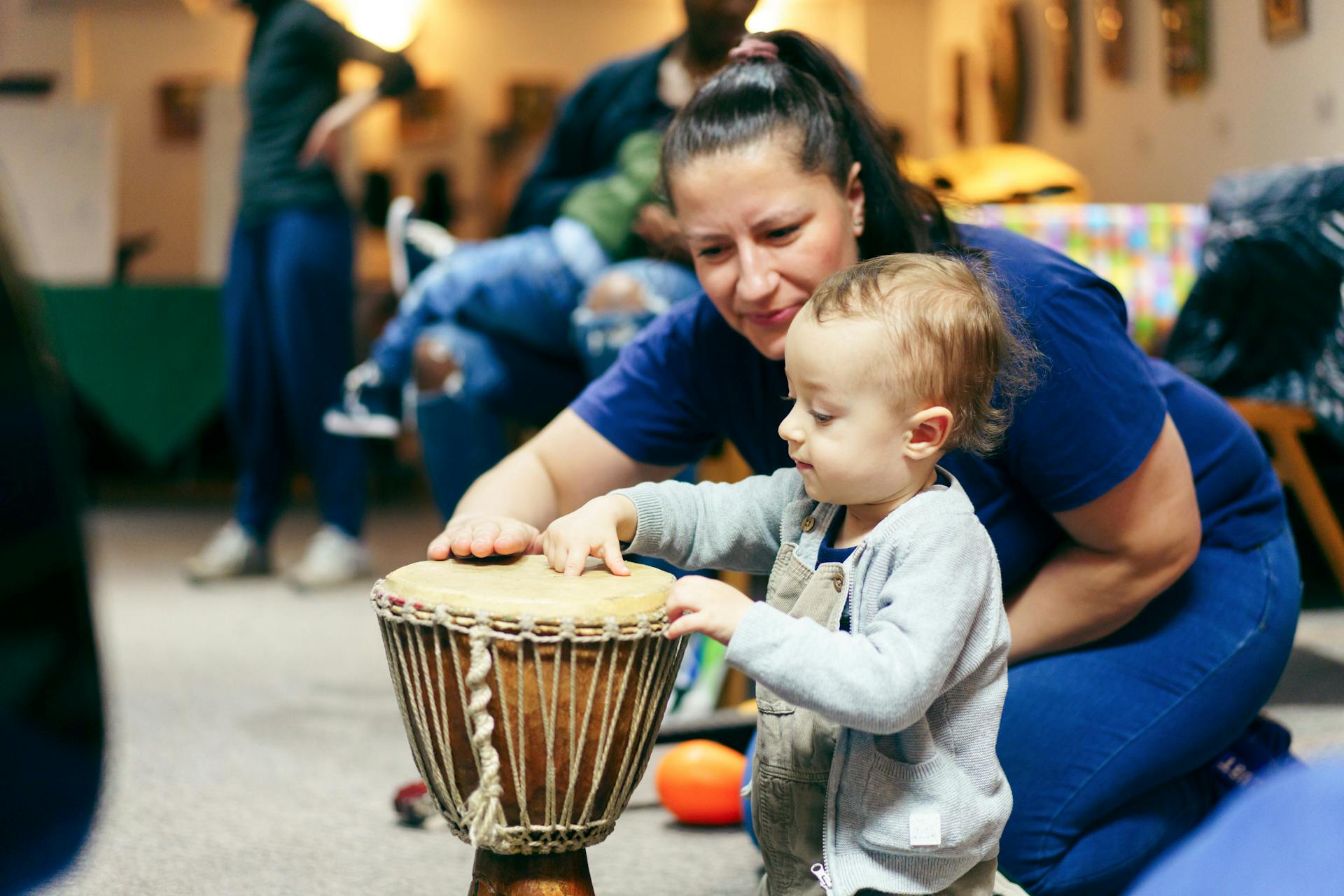
An Evaluation of Lambeth Early Action Partnership: 10 years on

Working with families and practitioners to support parent-infant relationships
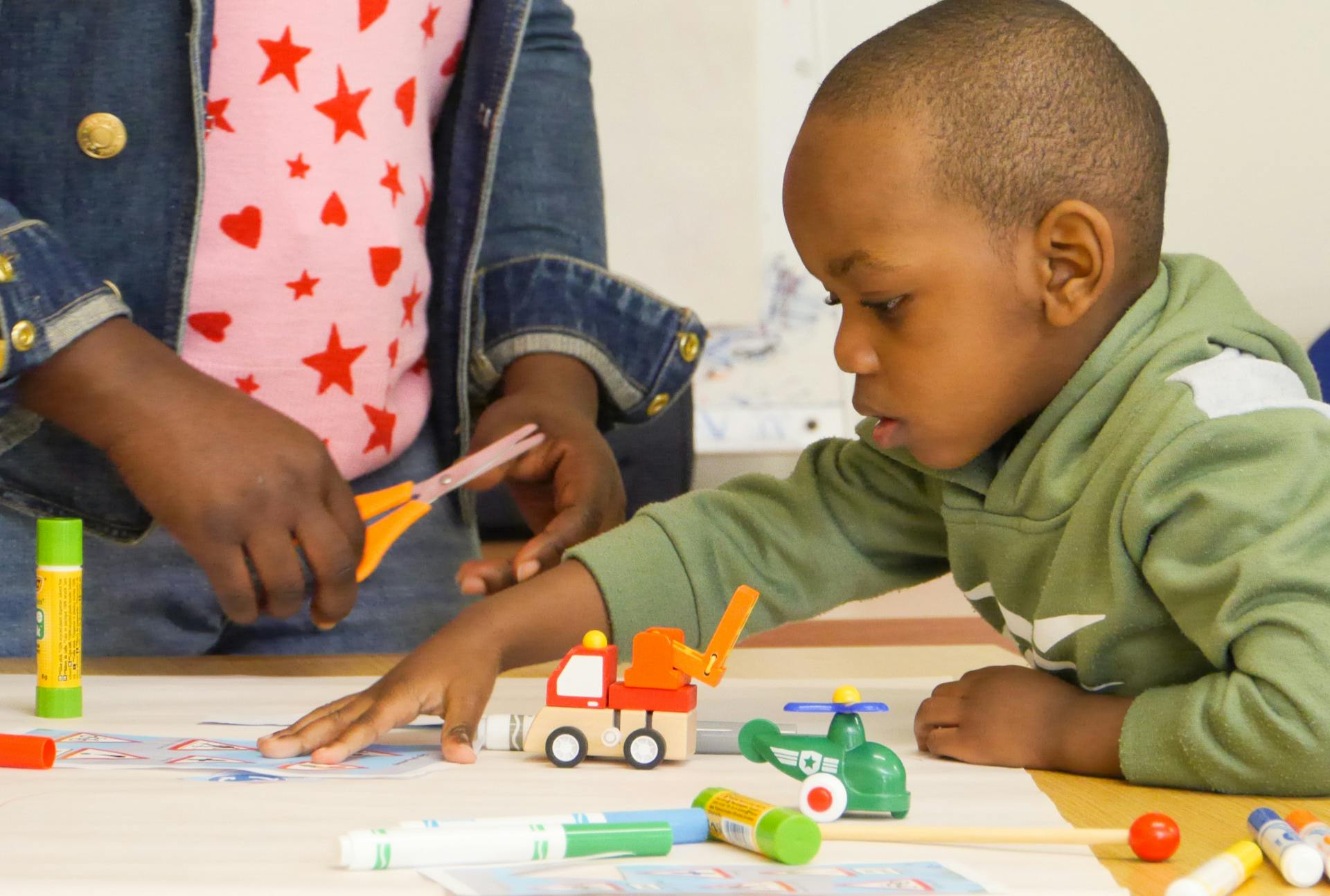
Improving support for communication and language development in early years settings

Building community capacity through a healthy food programme

Supporting pregnant women with a BMI over 25 to eat healthily and become more active

How a collective impact initiative contributed to outcomes of young children in Lambeth
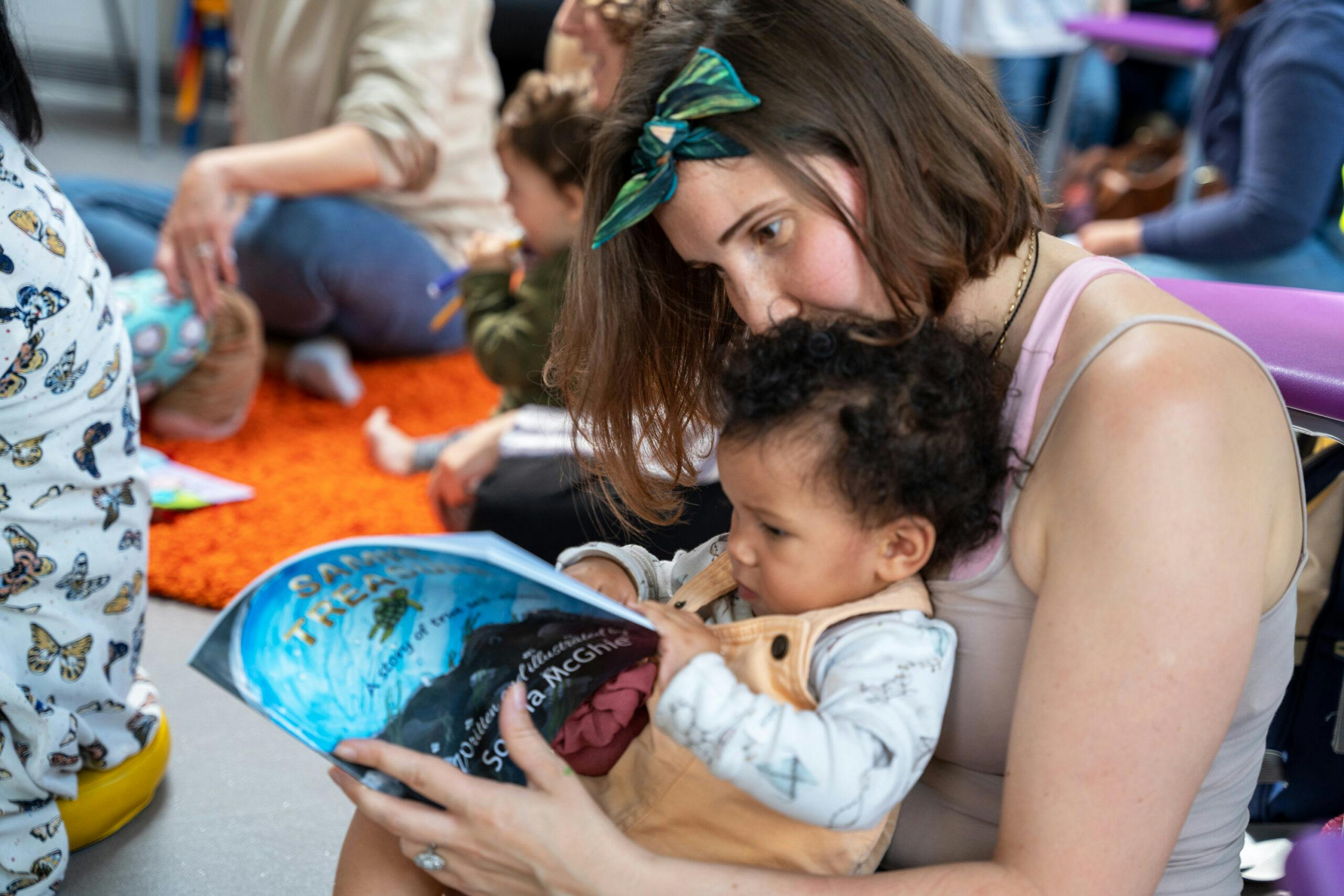
An evidence-based communication and language service building literacy skills in early years children
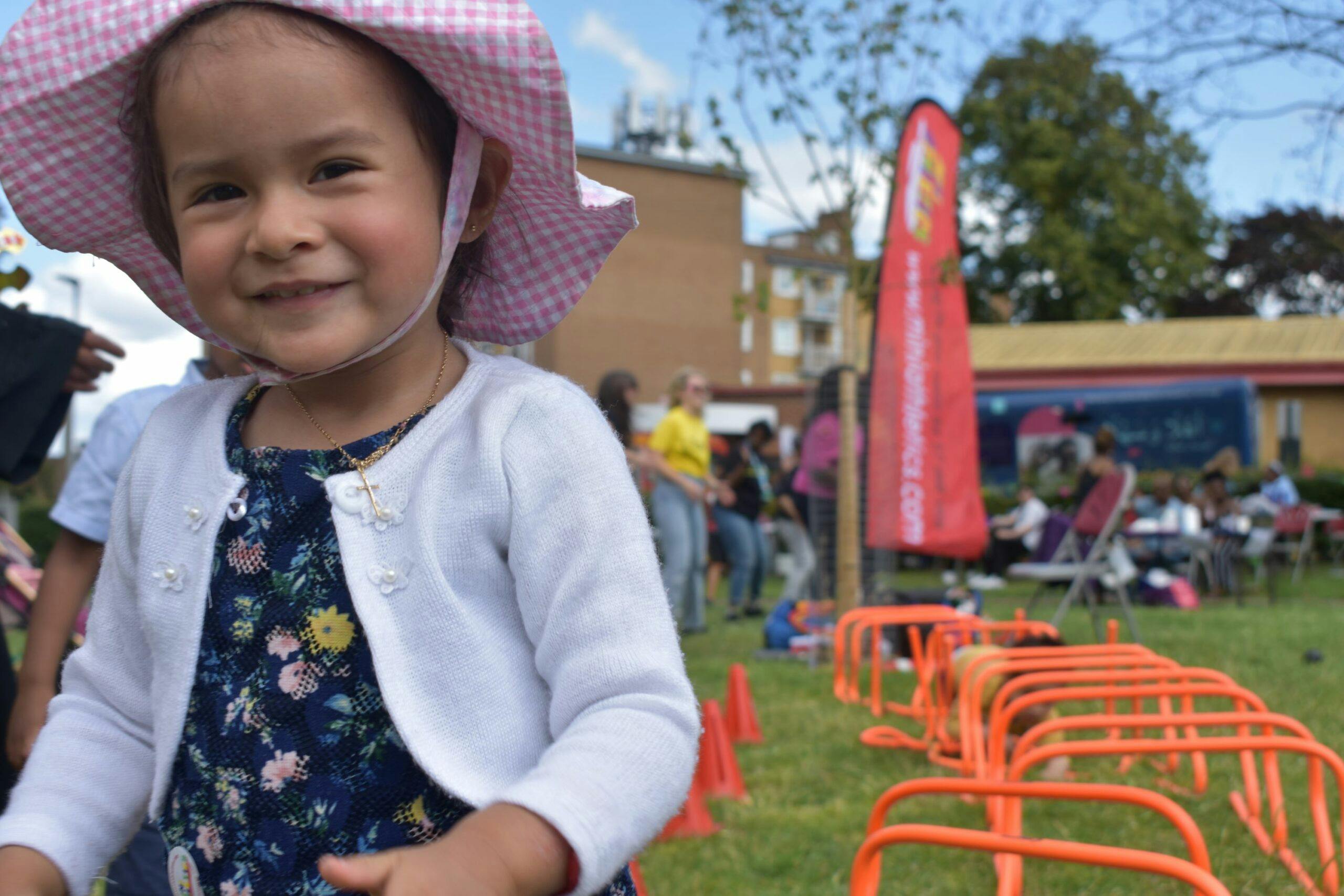
LEAP Annual Learning Report 2022/2023
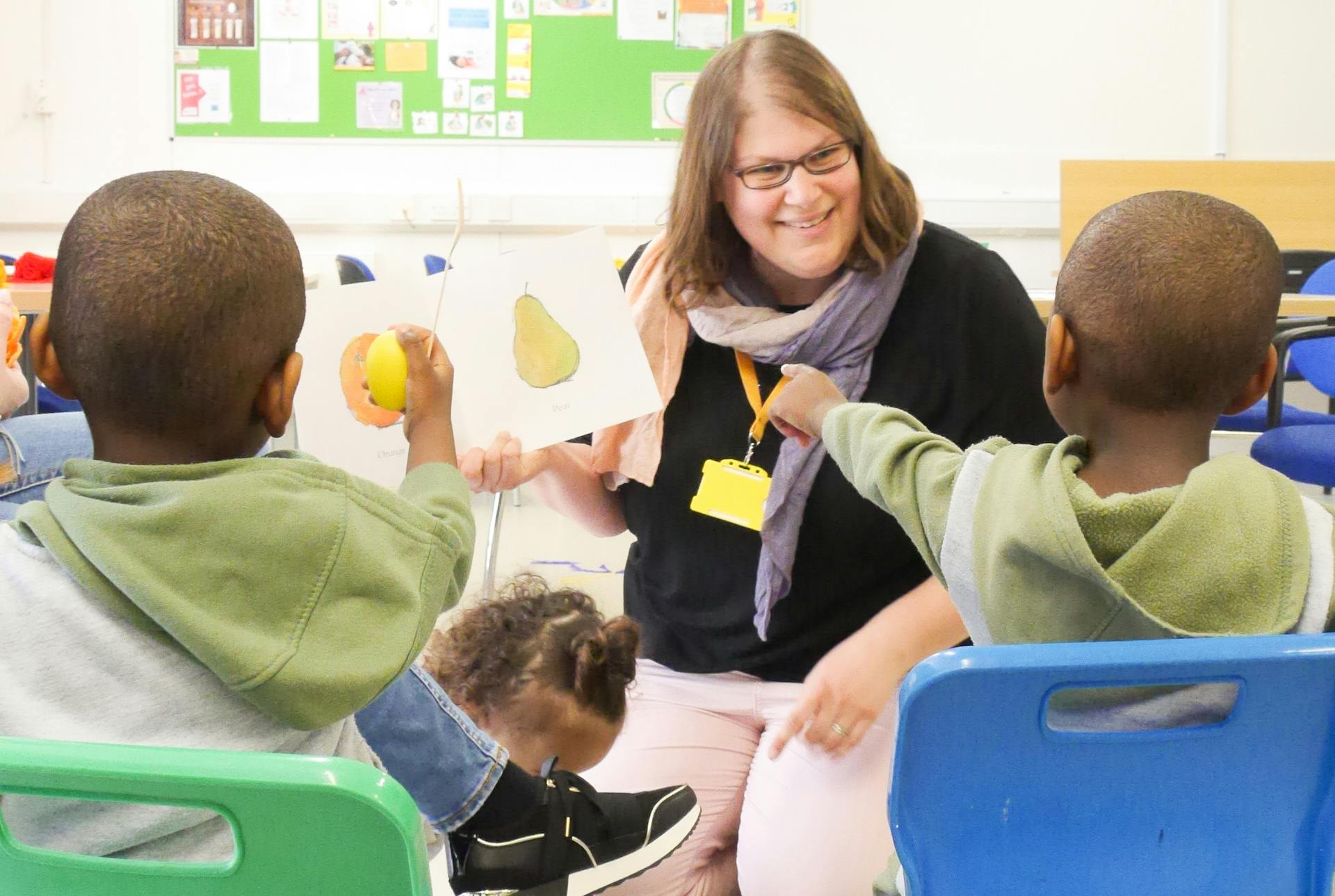
Making it REAL: Improving knowledge, confidence and motivation to support children’s early literacy skills in the home
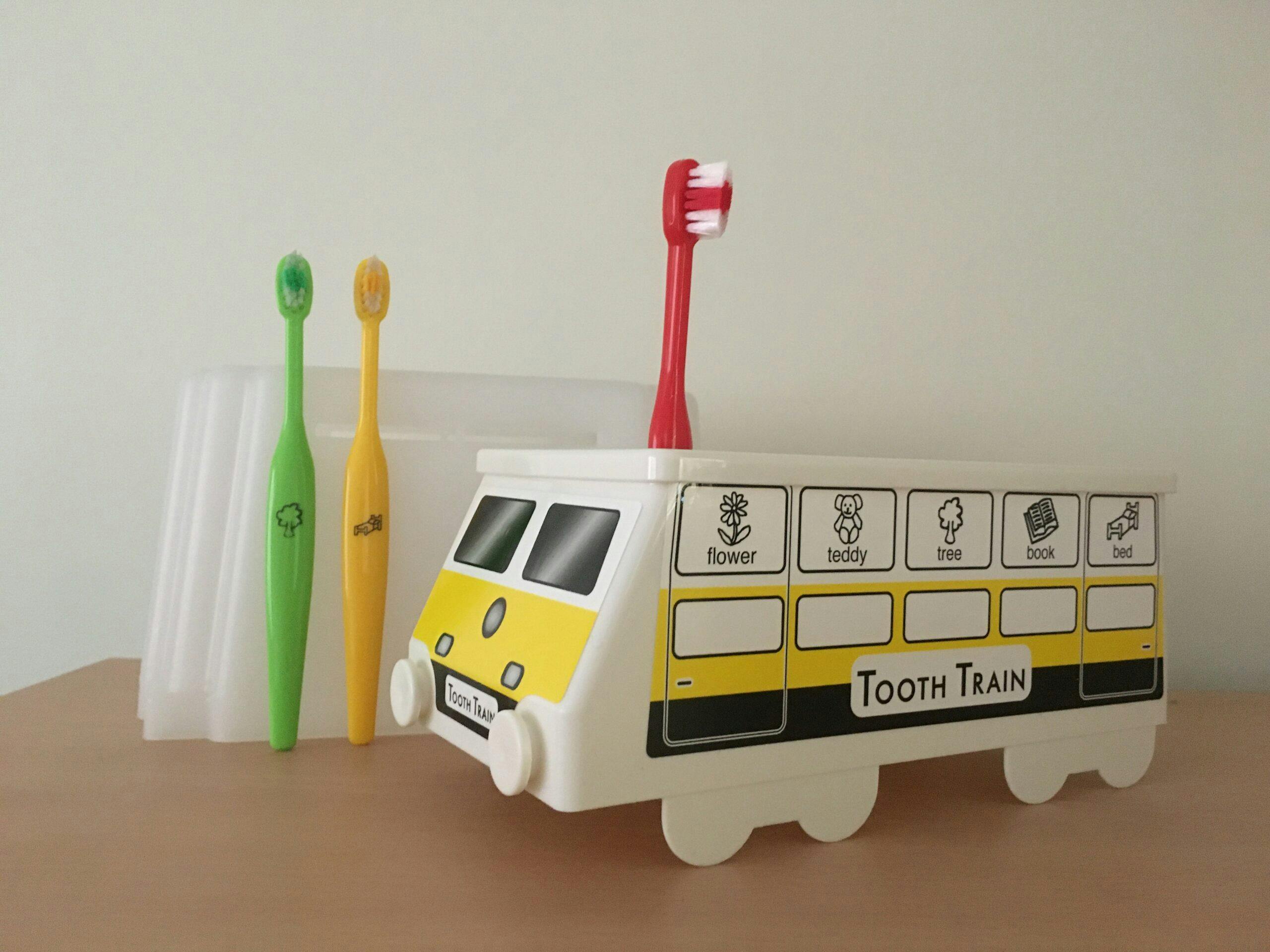
How LEAP worked to improve the oral health of young children living in a diverse inner-city area
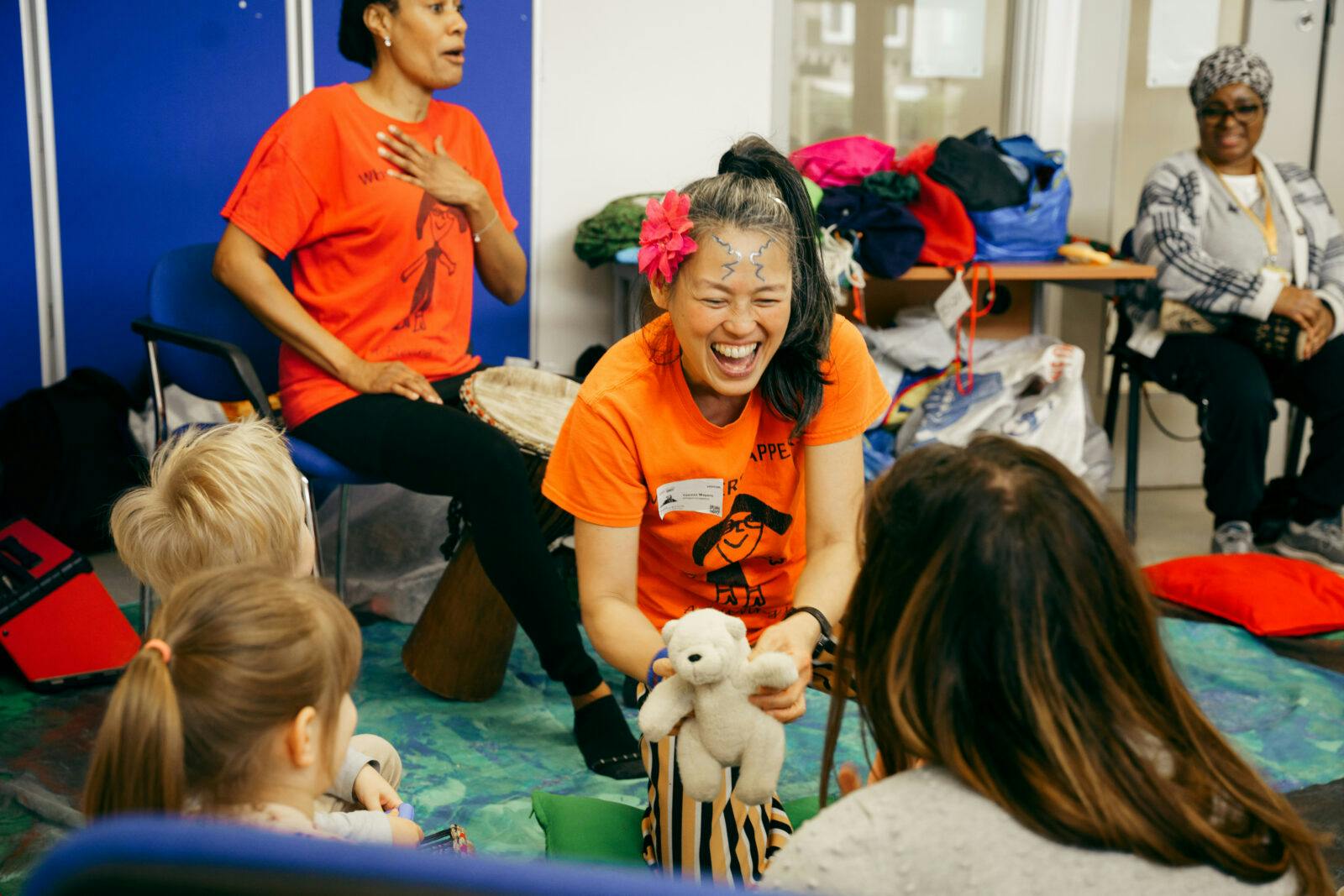
Building successful partnerships
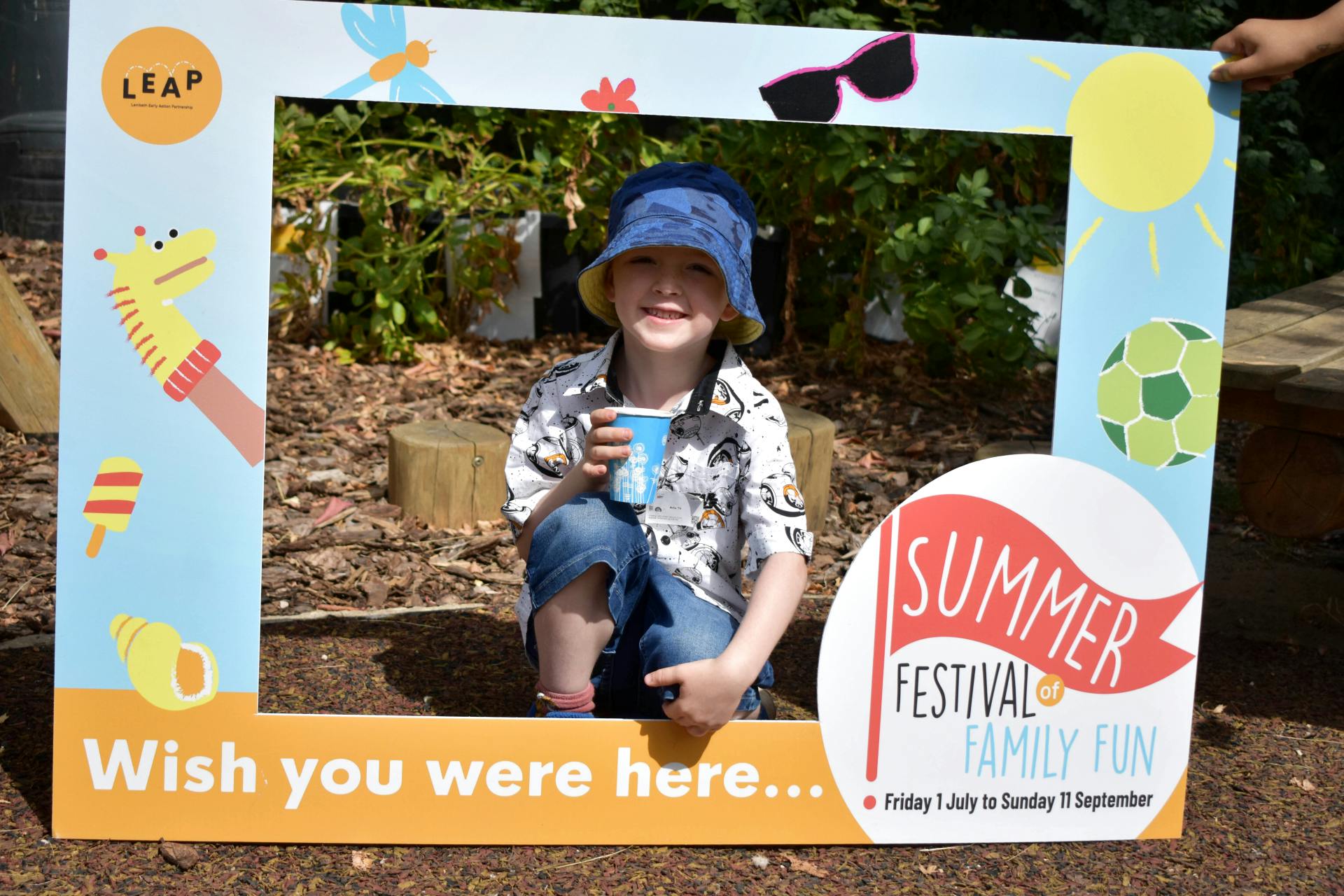
Community engagement in a diverse inner-city area
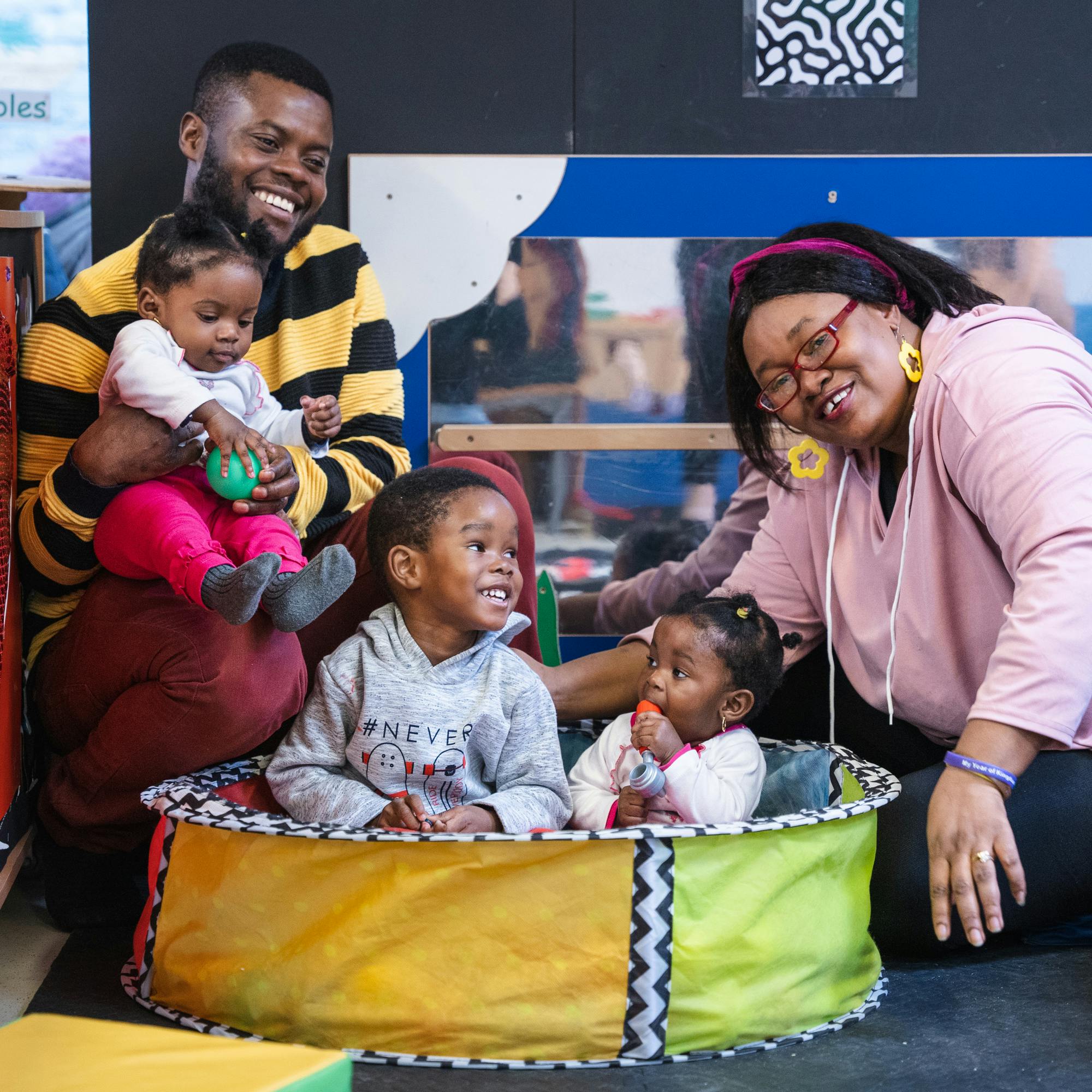
LEAP Annual Learning Report 2021/2022
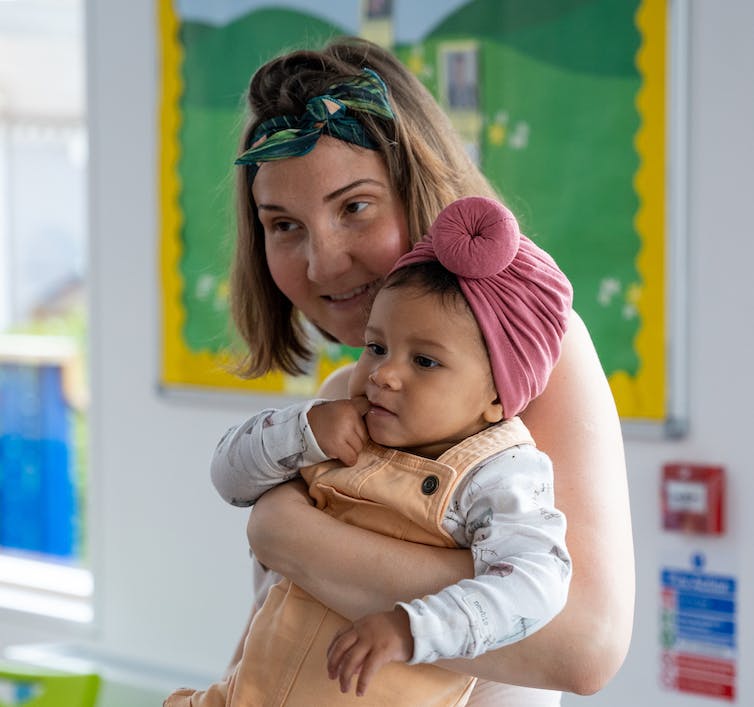
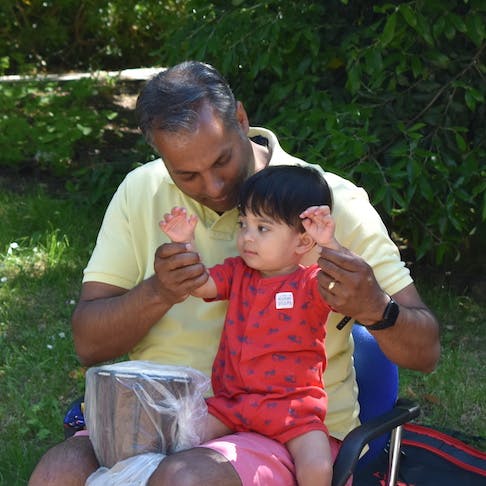
-
Parents tell us what our free Baby Steps programme means to them
-
How LEAP practitioners are supporting parent-infant relationships
I attended the Being a Parent course as it came highly recommended by a mum at the children’s centre and I was having a difficult time with my twins. The course really turned things around for me and my family. By the end, I had a better relationship with my twins and strategies to help me raise all of my 4 children. I then applied to become a Parent Group Leader as I believed in the course and wanted to help other parents in the same way I was helped.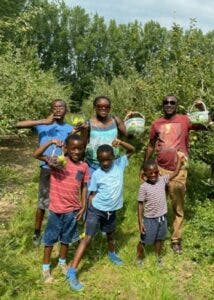
Enhanced Caseworkers work with expectant parents and those with young children (most often mothers) who are affected by domestic abuse. They offer emotional support and advice on practical matters such as safety, legal, housing, and finance. They also provide holistic support to help clients feel less isolated.
Communication and Language Development
Project spotlight
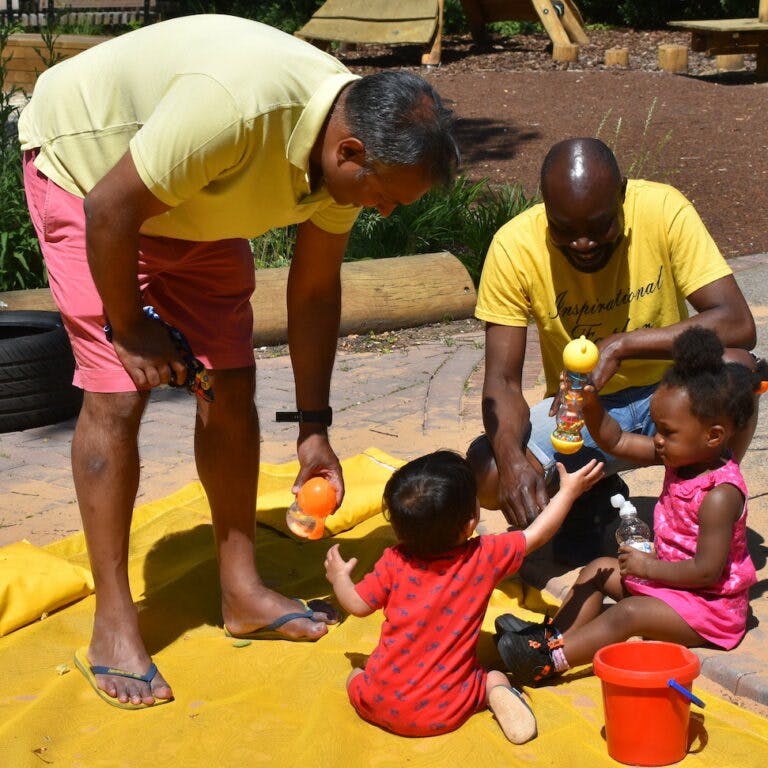
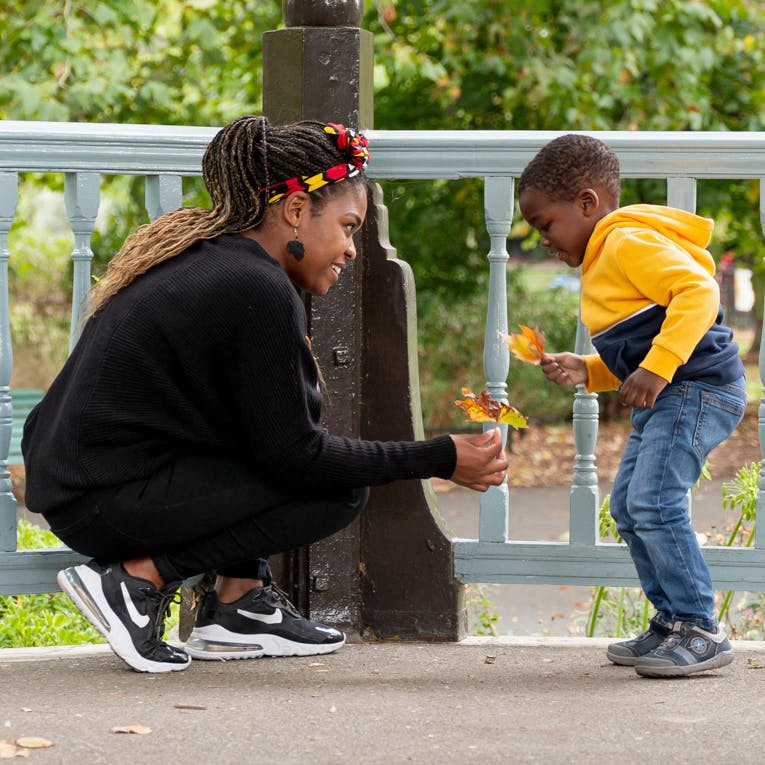
-
Outdoor learning and literacy
-
Supporting families and their 0-3 year-olds with speech & language
-
21+ nurseries and children’s centres connecting children and parents with nature and being active outdoors through the Natural Thinkers programme
-
15+ childcare settings working towards Evelina Awards for supporting and identifying children with speech, language and communication needs
-
202 families talking, playing and singing at Chattertime Stay & Play sessions
-
43,900 minutes reading with children and their families (through Doorstep Library)
Diet & Nutrition
Project spotlight
What children eat in their early years, and how active they are, have a direct impact on their health and ability to learn and achieve. Yet most child nutrition interventions do not specifically focus on the early years. Healthy nutrition should be a priority, not only in the early years, but from pregnancy and even before.
Our partnership supports parents to make healthier choices in pregnancy and to breastfeed for longer. We make it easier for families with young children to access vegetables, cook together, exercise together and support each other as a community.
-
Lorretta on LEAP’s Community Activity and Nutrition programme (CAN)
-
Helping families and their little ones live a healthier life.
-
 4,810 hot and healthy meals delivered to families with a new baby throughout lockdown
4,810 hot and healthy meals delivered to families with a new baby throughout lockdown -
 800+ children brushing their teeth at nursery as part of our supervised toothbrushing programme
800+ children brushing their teeth at nursery as part of our supervised toothbrushing programme -
3,000+ new mums supported to breastfeed by our breastfeeding peer support service
-
117 Food Ambassadors cooking up a storm, and gaining qualifications while they’re at it
-
760 pregnant women supported by our CAN service to eat more healthfully
-
1,443 toothbrushes and tubes of fluoride toothpaste given to children under 1
Maternity
Project spotlight
Support during pregnancy and the early weeks after birth is key to giving families the best start in life. Experiences during pregnancy and early childhood closely inform outcomes in later life. The earliest opportunities for intervention occur within this period: pre-conception, pregnancy and the early weeks after birth. They lay the groundwork for a range of outcomes, including physical and mental health, cognitive development and academic attainment.
Our partnership provides midwifery continuity of care for pregnant women and birthing people living in the LEAP area. We support midwives to more consistently identify social complexities during pregnancy. We have demonstrated better birth outcomes for LEAP women and have worked with the Royal College of Midwives to launch a standardised tool for assessing social complexity in pregnancy.

-
LEAP Midwives – Women’s experiences
-
What’s it like being a LEAP Midwife?
-
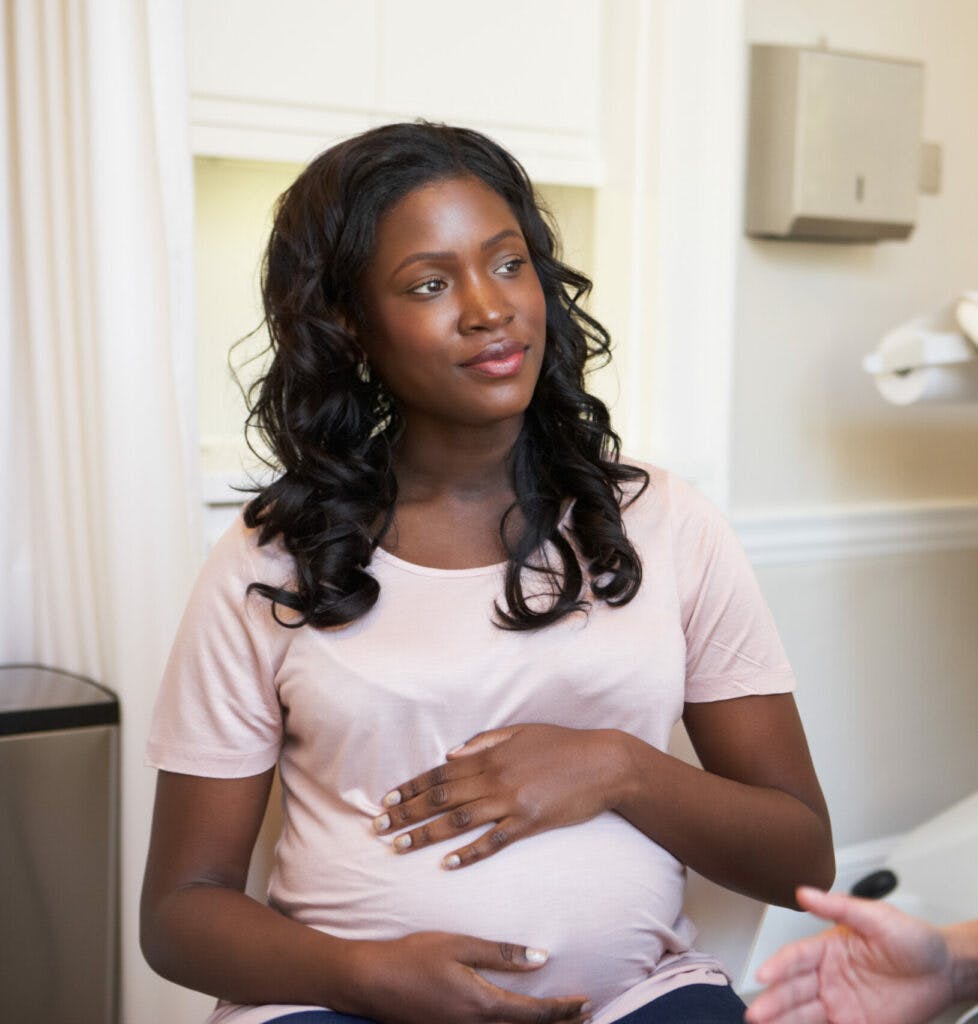 An evaluationRead the evaluation
An evaluationRead the evaluationEvaluation of the Maternity Vulnerability Assessment Tool (MatVAT)
This tool was initially named the Maternity Vulnerability Assessment Tool (MatVAT) and was later renamed the Maternity Disadvantage Assessment Tool (MaTDaT).
-
 BMJ JournalSee the stats
BMJ JournalSee the statsLEAP’s midwifery continuity-of-care service
A study showing how the LEAP midwifery model improves outcomes by significantly reducing preterm births and births by caesarean section when compared with traditional care.
-
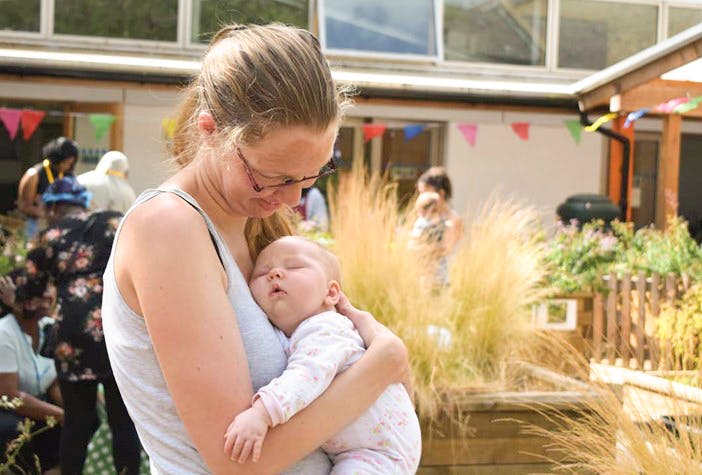 Learning event posterRead our poster
Learning event posterRead our posterImproving equity in maternity care
Lessons from the Lambeth Early Action Partnership (LEAP).
-
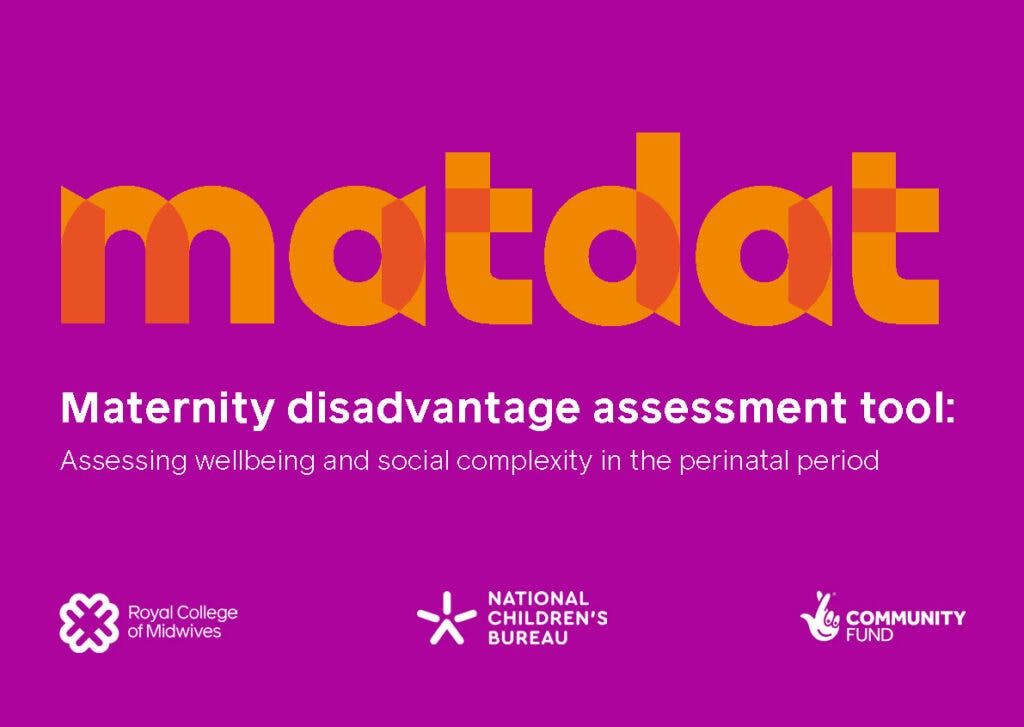 A standardised toolLearn more
A standardised toolLearn moreMaternity Disadvantage Assessment Tool (MaTDaT)
For assessing social complexity in maternity, based on women and birthing people’s broad social needs. It guides midwives to identify the appropriate care level and assists with providing personalised care and planning appropriate support. The tool is hosted by the Royal College of Midwives.
I have been nurtured all the way through my pregnancy and the LEAP midwives have stepped up at every stage…the closer to birth, the more reassurance I required, the care came to meet my needs.
Community Engagement
Project spotlight
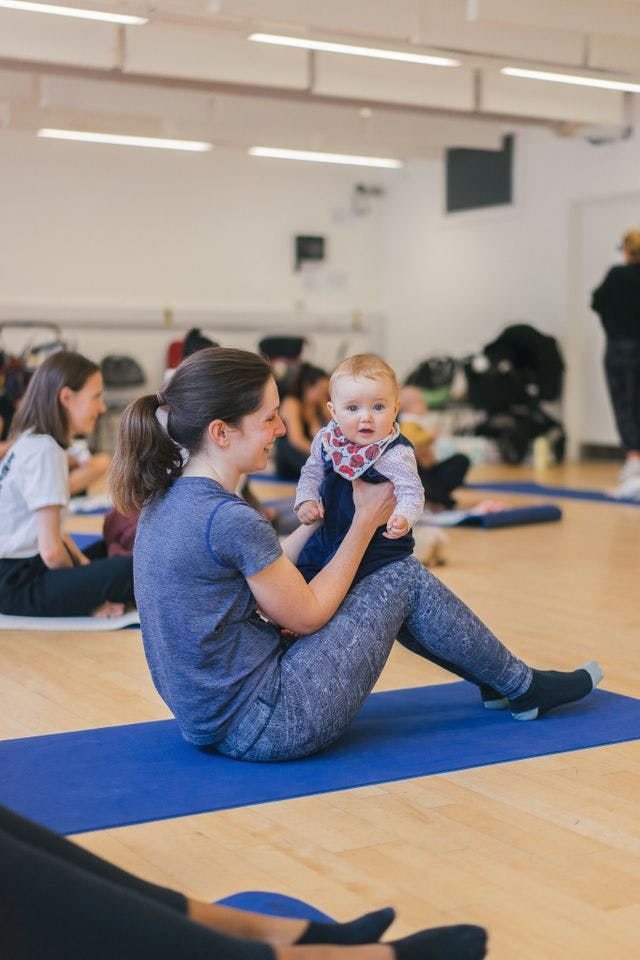
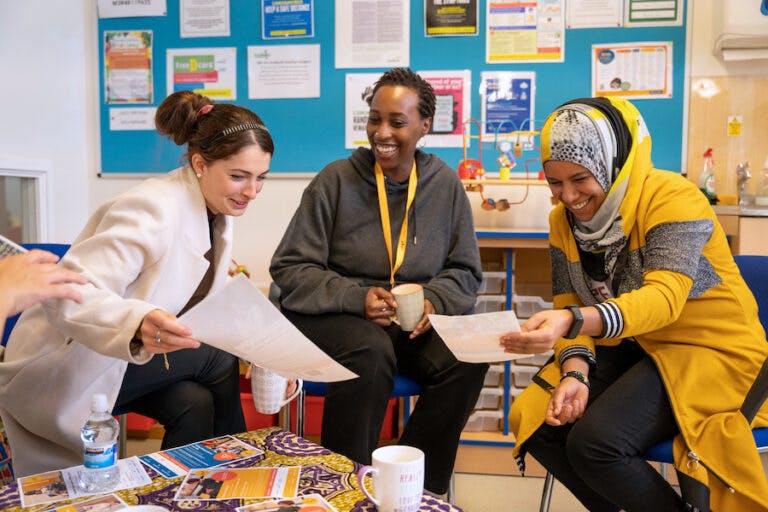
-
How parents are volunteering to help their community
-
Working with community partners makes it easier for families to get the support and services they need
It’s not just having somewhere to go with kids, or things to do with kids. It’s also developing confidence amongst the parents, and friendships as well.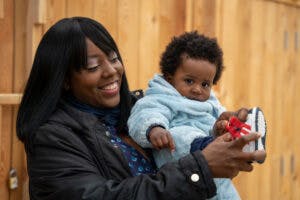
I felt like I could trust my befriender, and I was able to open up to her. Having a reason to come out, not just about baby things, but meeting up with another adult, and integrating the children at the same time opened doors.
-
3,437 children learning, playing, growing and getting support at 1,824 community engagement events
-
223 mums and dads giving up their time to connect with and give support to families
-
 180+ community organisations, groups and services have partnered with our community engagement team
180+ community organisations, groups and services have partnered with our community engagement team -
 68 parents and carers contributing ideas to shape early years services and activities at our People in the Lead sessions
68 parents and carers contributing ideas to shape early years services and activities at our People in the Lead sessions -
 7,261 online registrations for events and activities over a period of two and a half years
7,261 online registrations for events and activities over a period of two and a half years -
 750 families receiving a regular e-newsletter about free community engagement support and activities
750 families receiving a regular e-newsletter about free community engagement support and activities
Building Our Legacy
Project spotlight
Our place-based approach looks at the factors driving local inequalities in early childhood development and works on collective solutions to tackle them for good. We are making sure that when the programme ends in 2025, we will have achieved lasting change for our families.
Our legacy means…
Informed by the evidence
At LEAP, we tested our services, learned about what works, and continuously adapted and refined them to better meet the needs of local families. Services were provided with regular comprehensive data reports on their delivery. You can read some of our analysis and evidence here.
-
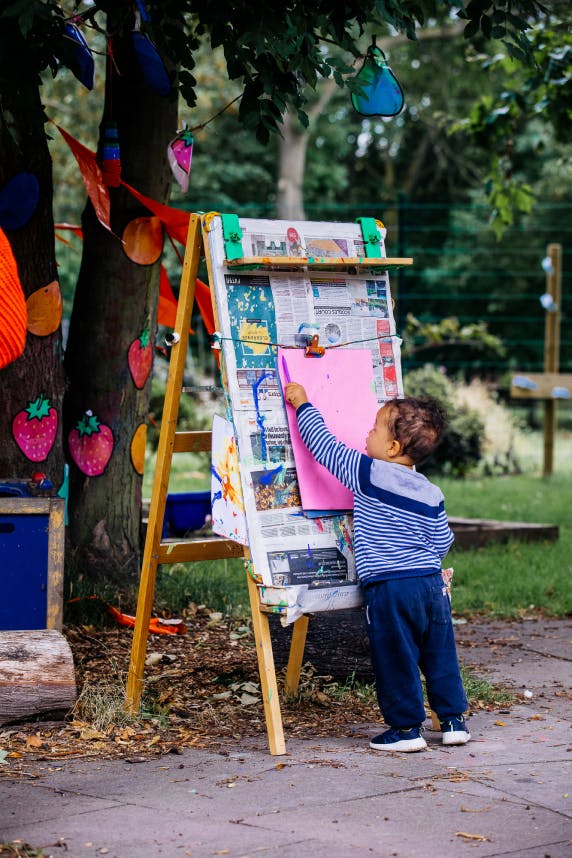 LEAP DATASee the stats
LEAP DATASee the statsThe LEAP Data Dashboard
Key data about the LEAP programme all in one place for our colleagues, services, and the wider community to explore.
-
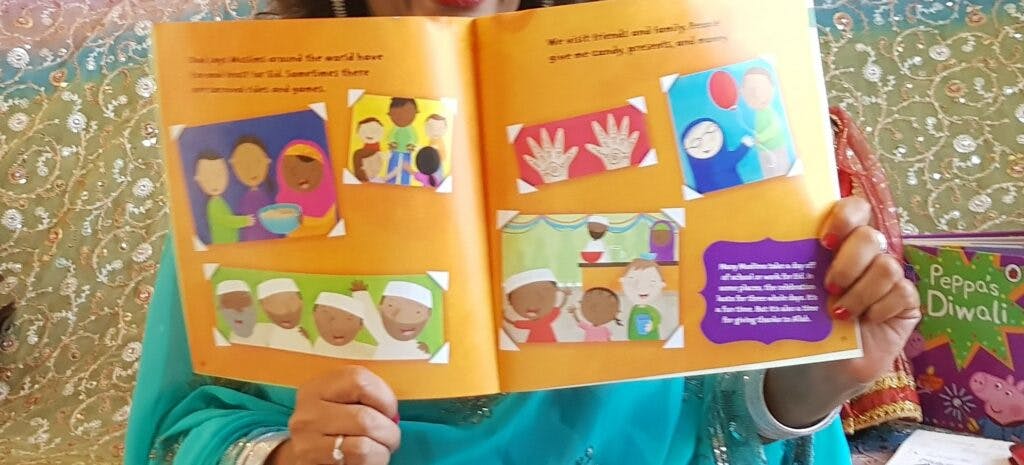 LEAP EVIDENCERead our poster
LEAP EVIDENCERead our posterIs communication and language development (CLD) an inequalities issue for children in Lambeth?
CLD at 5 is an outcome we can measure to provide an indication of the CLD needs of our community.
-
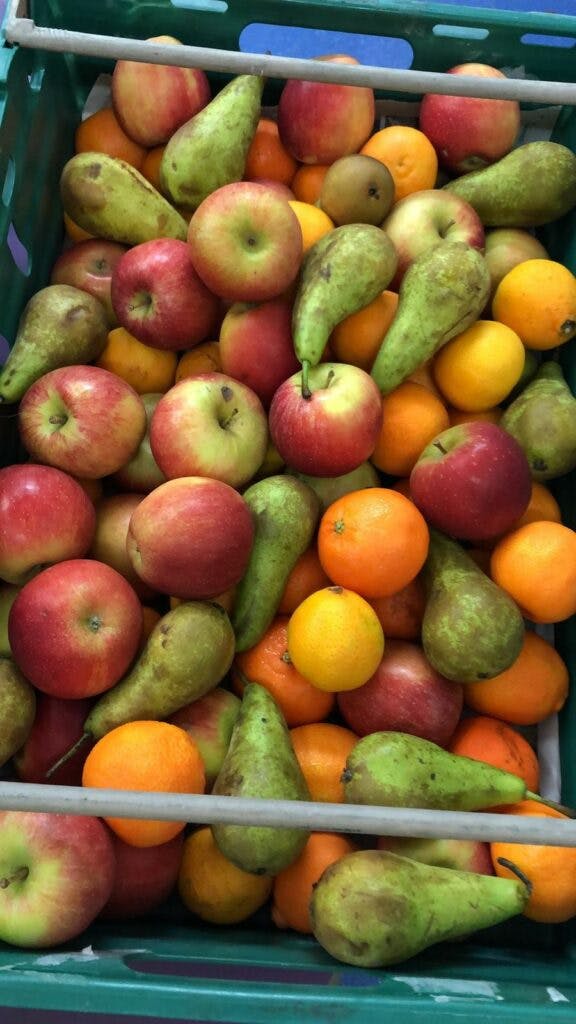 LEAP evidenceSee the stats
LEAP evidenceSee the statsIs excess weight an inequalities issue for children in Lambeth?
Comparing prevalence of overweight & obese 5-year-olds in the LEAP area with the rest of Lambeth.
-
 LEAP EVIDENCERead our poster
LEAP EVIDENCERead our posterIs personal, social and emotional development an inequalities issue for children in Lambeth?
Comparing developmental milestones of 5-year-olds in the LEAP wards with the rest of Lambeth.
-
 LEAP EVIDENCERead our analysis
LEAP EVIDENCERead our analysisLive Births in Lambeth
Analysis of local fertility rates in Lambeth.
Evaluating our impact
We will be evaluating the individual services and activities that make up LEAP and the overall programme. This work will be led by the Dartington Service Design Lab and the National Centre for Social Research.
-

Turning to our local evaluation team and national evaluation partner for learnings that help us evolve and adapt our services.
-
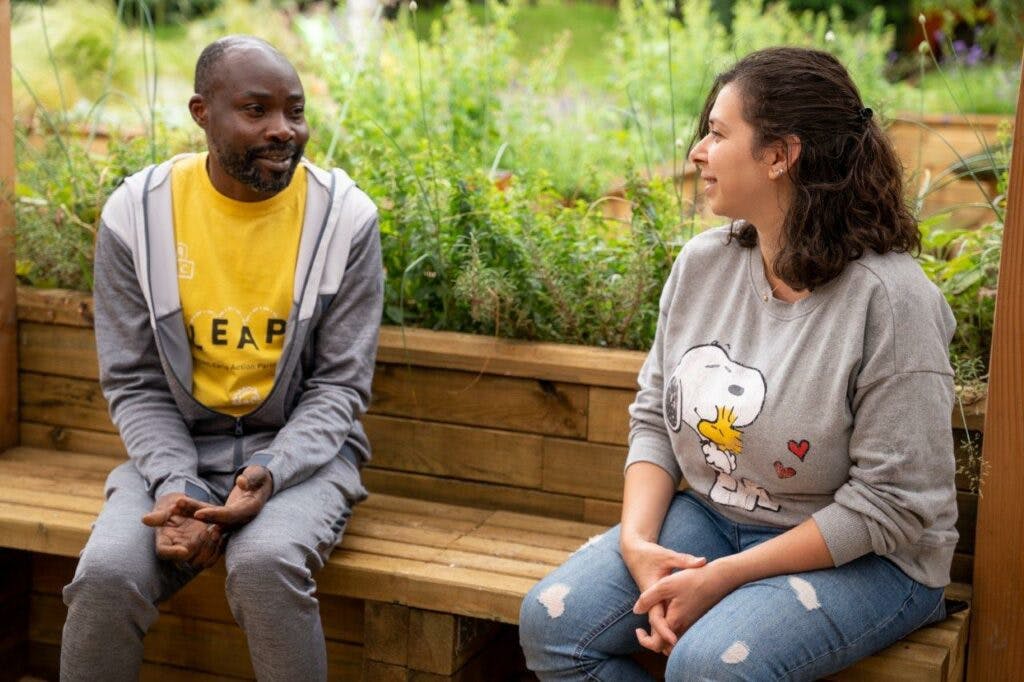
Employing 4 local community researchers to test and gather data on LEAP services to ensure they are making a lasting difference for early years children and their families.
-
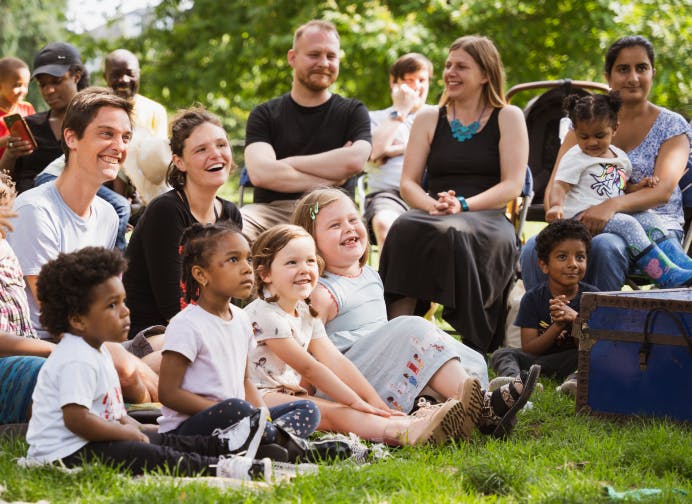
Uniting our providers around a Theory of Change – recognising the complex social problems, while focusing on what we can realistically change.
Bringing local services together, in partnership
LEAP services work closely together and build on one another. As a whole, they provide opportunities for families to access a wide range of support at each stage of their child’s early development, and they represent an unprecedented collective effort to give local children a better start.
Funders often fund one thing at a time, but by looking at the whole environment in a particular area you get this connectedness. It’s brilliant value for money.
-
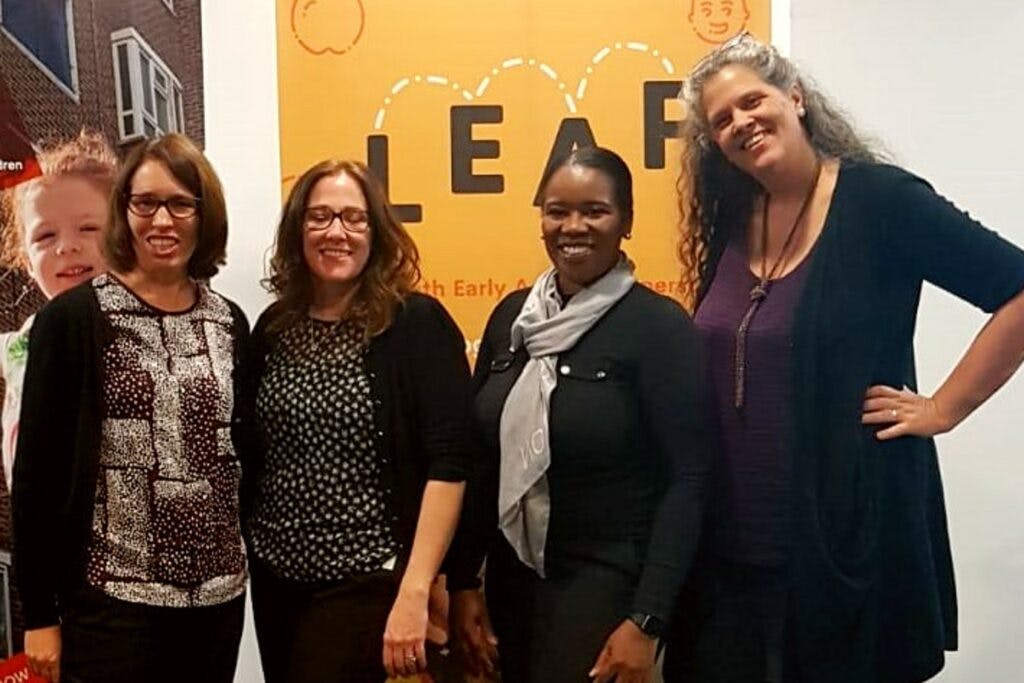 Case studyRead more
Case studyRead moreA multi-disciplinary team working for pregnant women
What happens when frontline practitioners are given protected time to work together?
-
 Case studyRead more
Case studyRead moreConnecting GPs with children at risk of poor health outcomes
The GP Connect project ensures that early help can be offered to at-risk families and children.
Investing in local places and spaces
Creating permanent, useful and attractive spaces for early years children and their families to thrive and develop.
The refurbishment of Liz Atkinson has greatly improved things. The benefit of having two rooms is that we can see more women here. We don’t have to do so many home visits. It’s also easier for us to get together as a team. Caseload midwifery can be a bit lonely, so it’s great to get together, and to be able to meet the other services.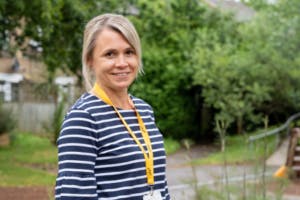
Embedding suitable services across the borough
As we gather evidence, we are also committed to exploring which services could be rolled out across the borough. Essentially, we focus our activity on a small area, but we hope to make a difference that goes much wider.
We need to become more ACE informed so that we can build resilience and change the lives of families and the people that we work with, and change their outcomes.
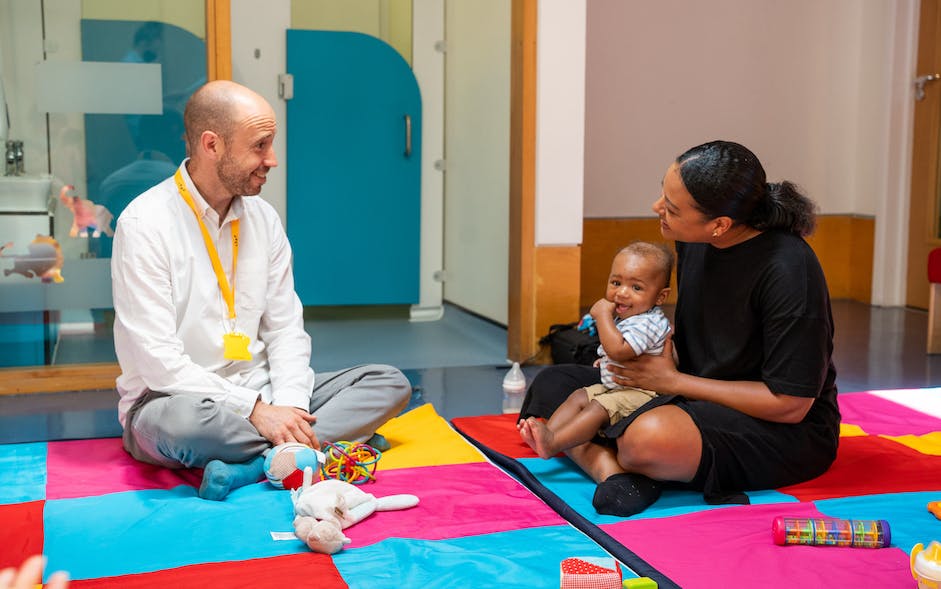
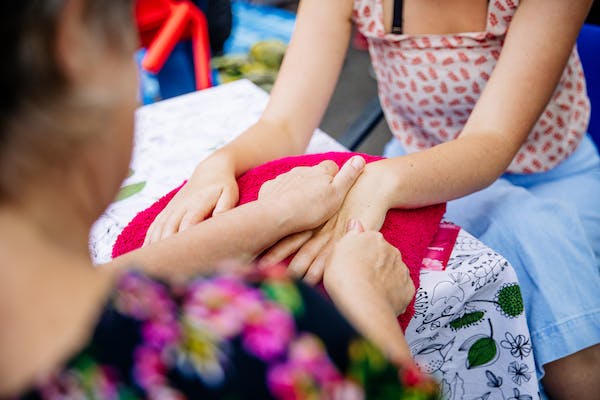
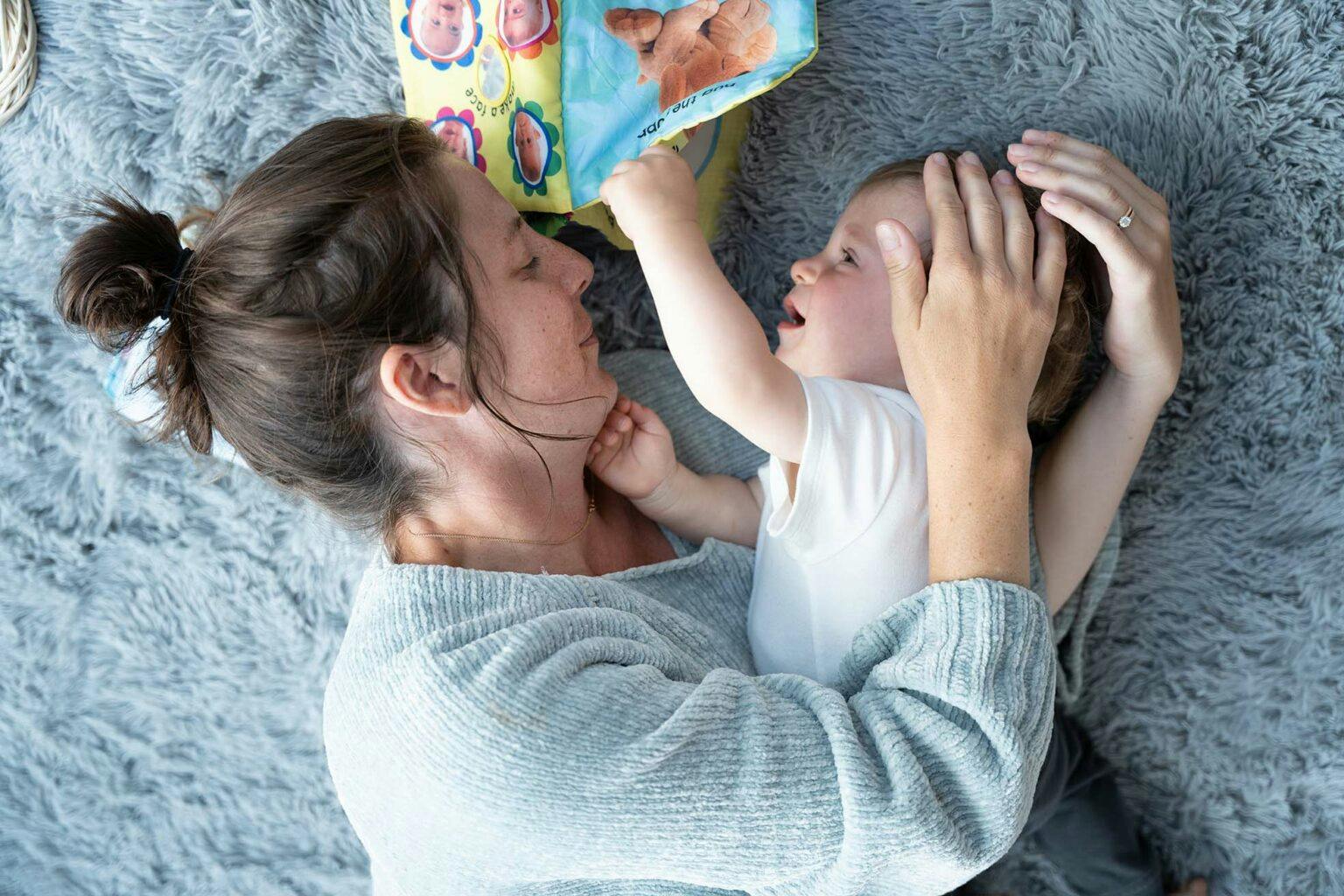
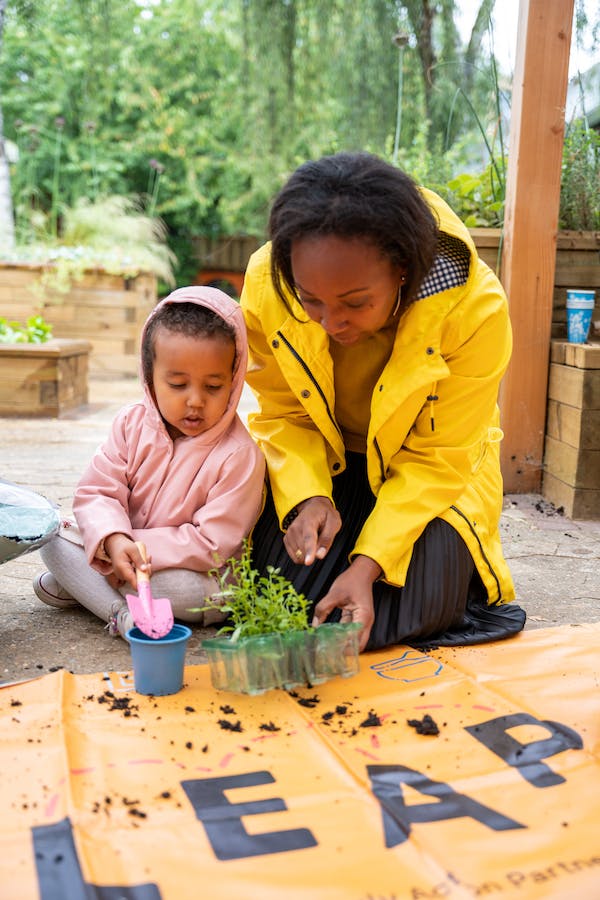
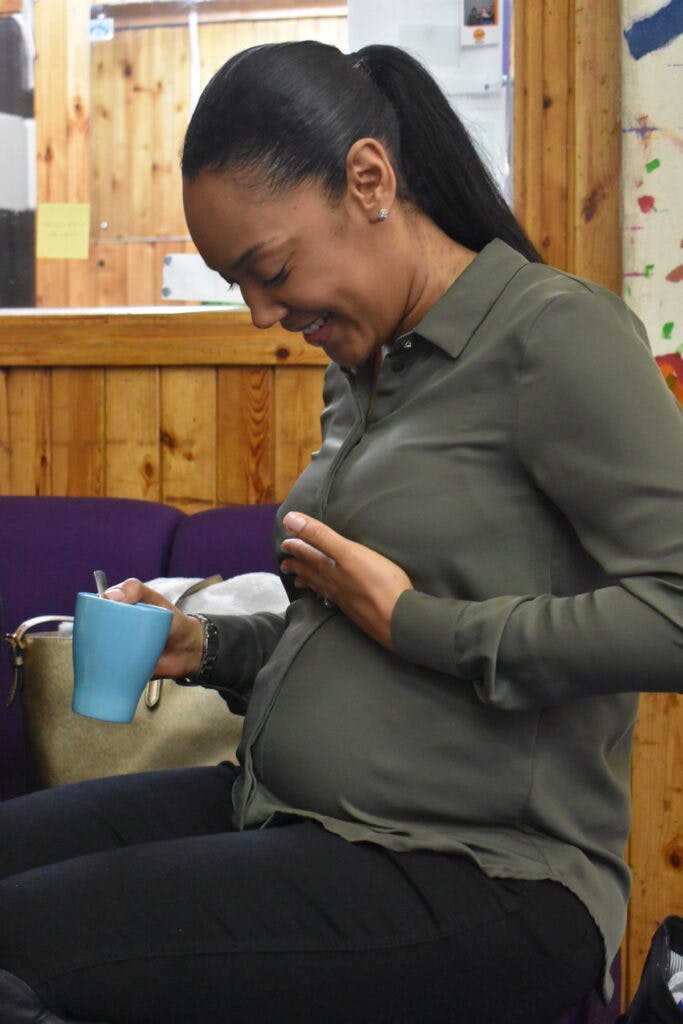
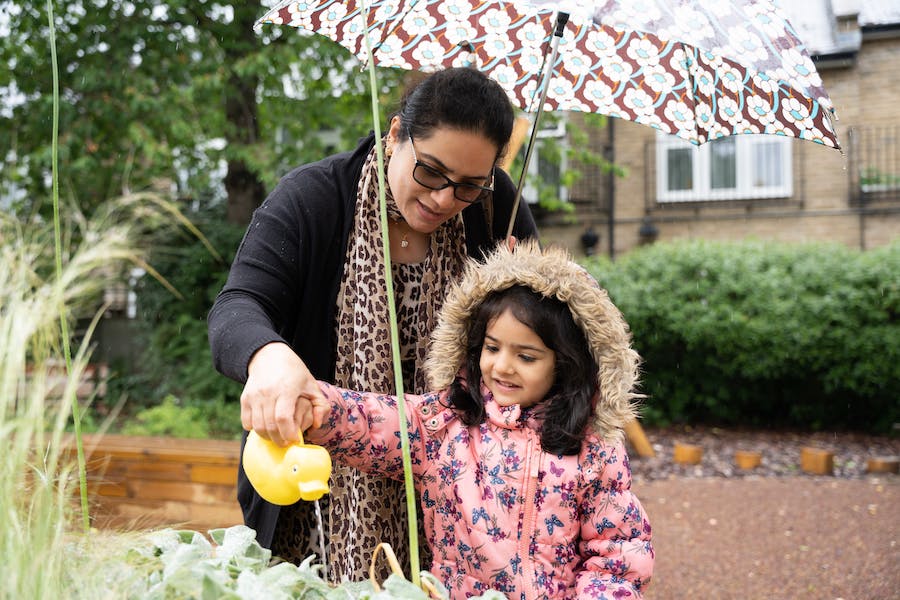
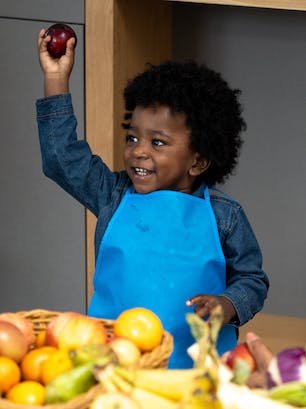
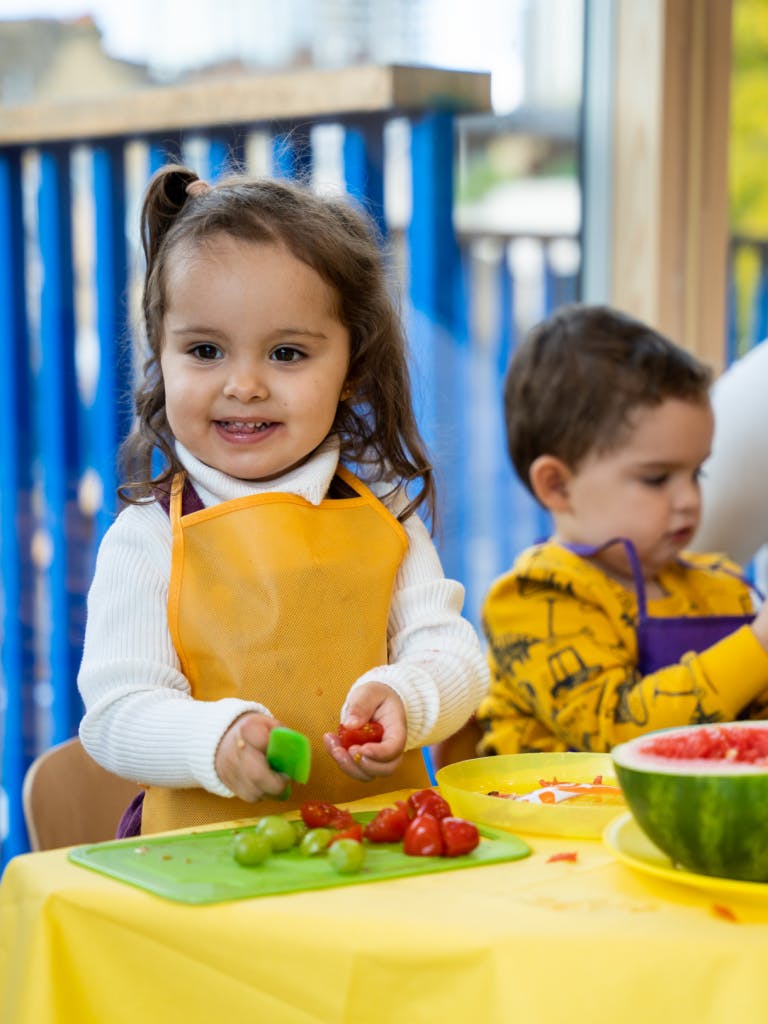
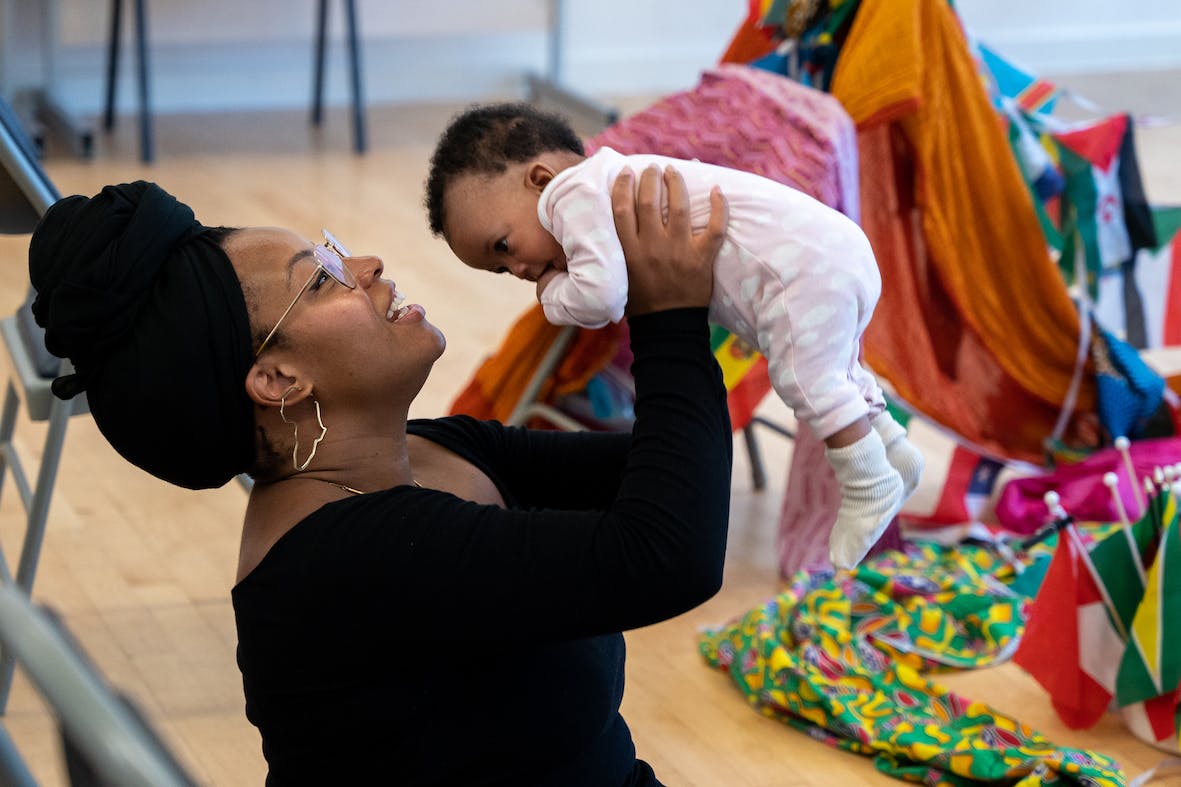
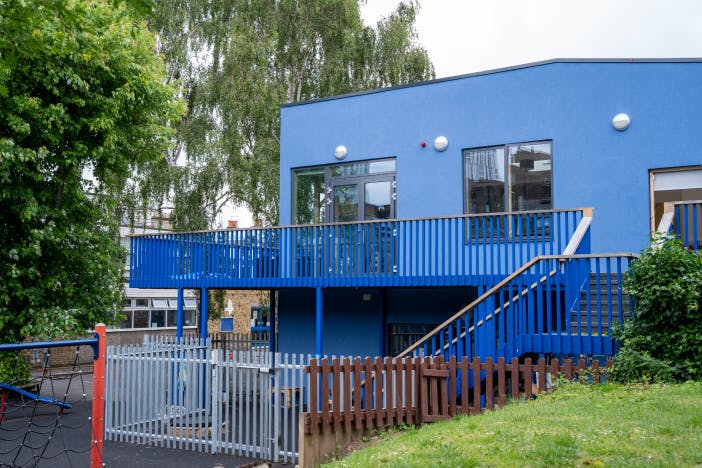
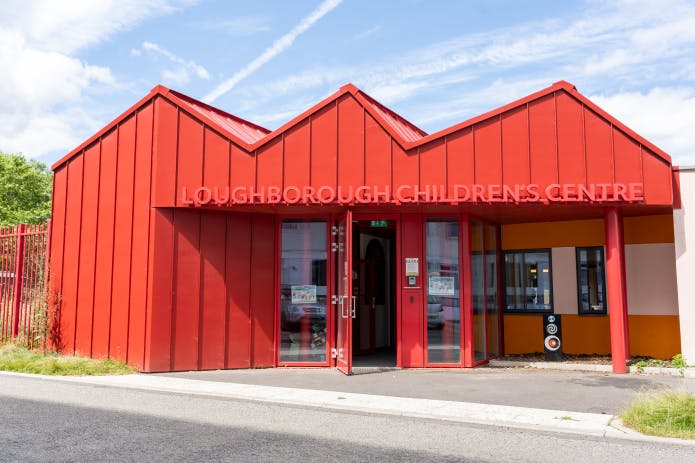
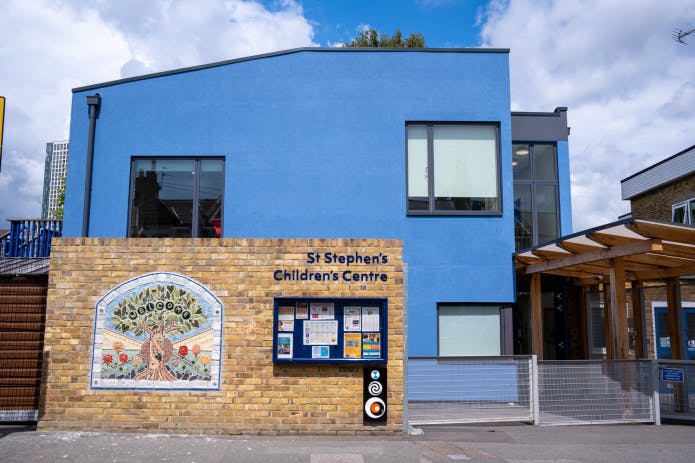
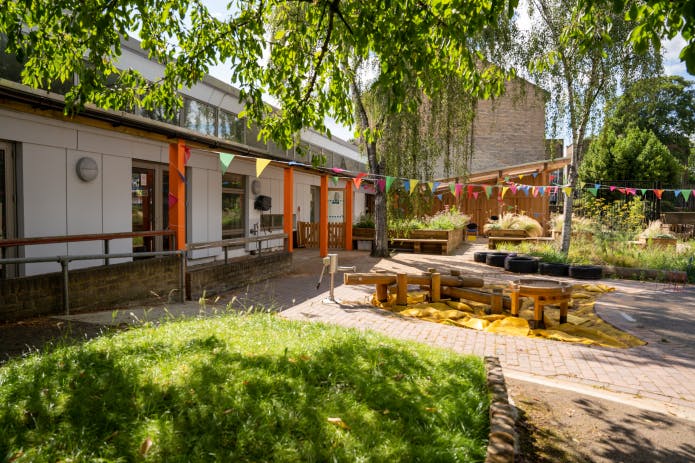
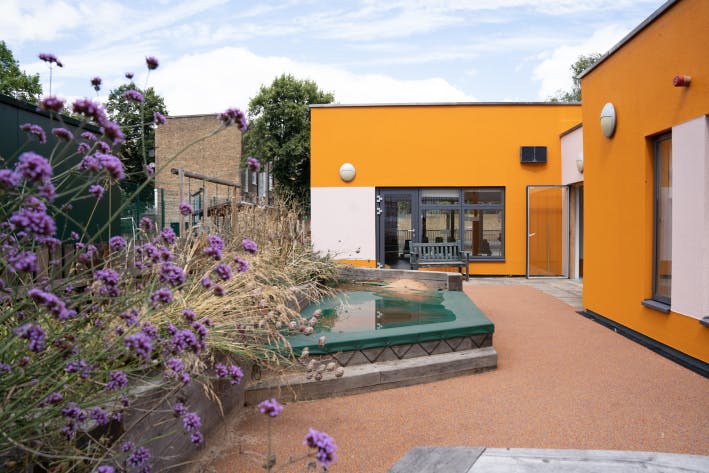
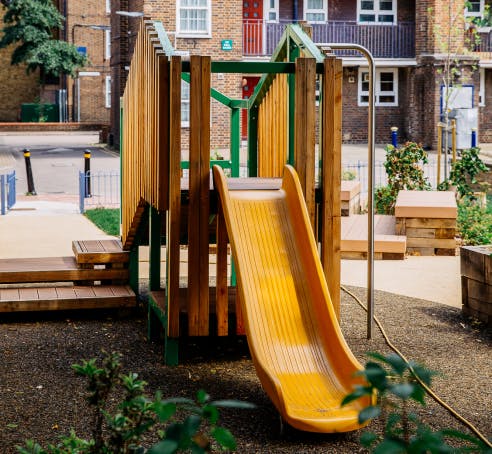
Social & Emotional Development
Project spotlight